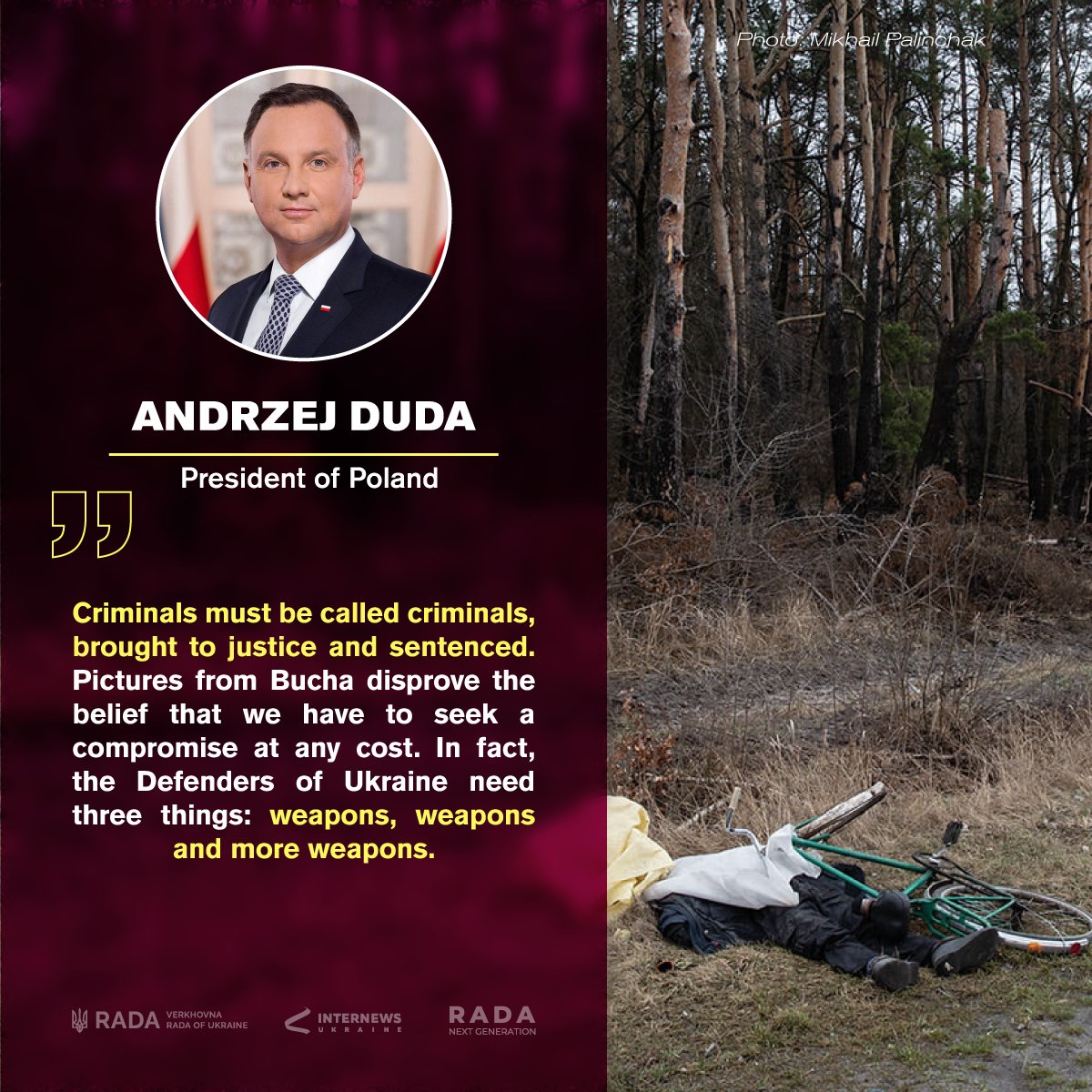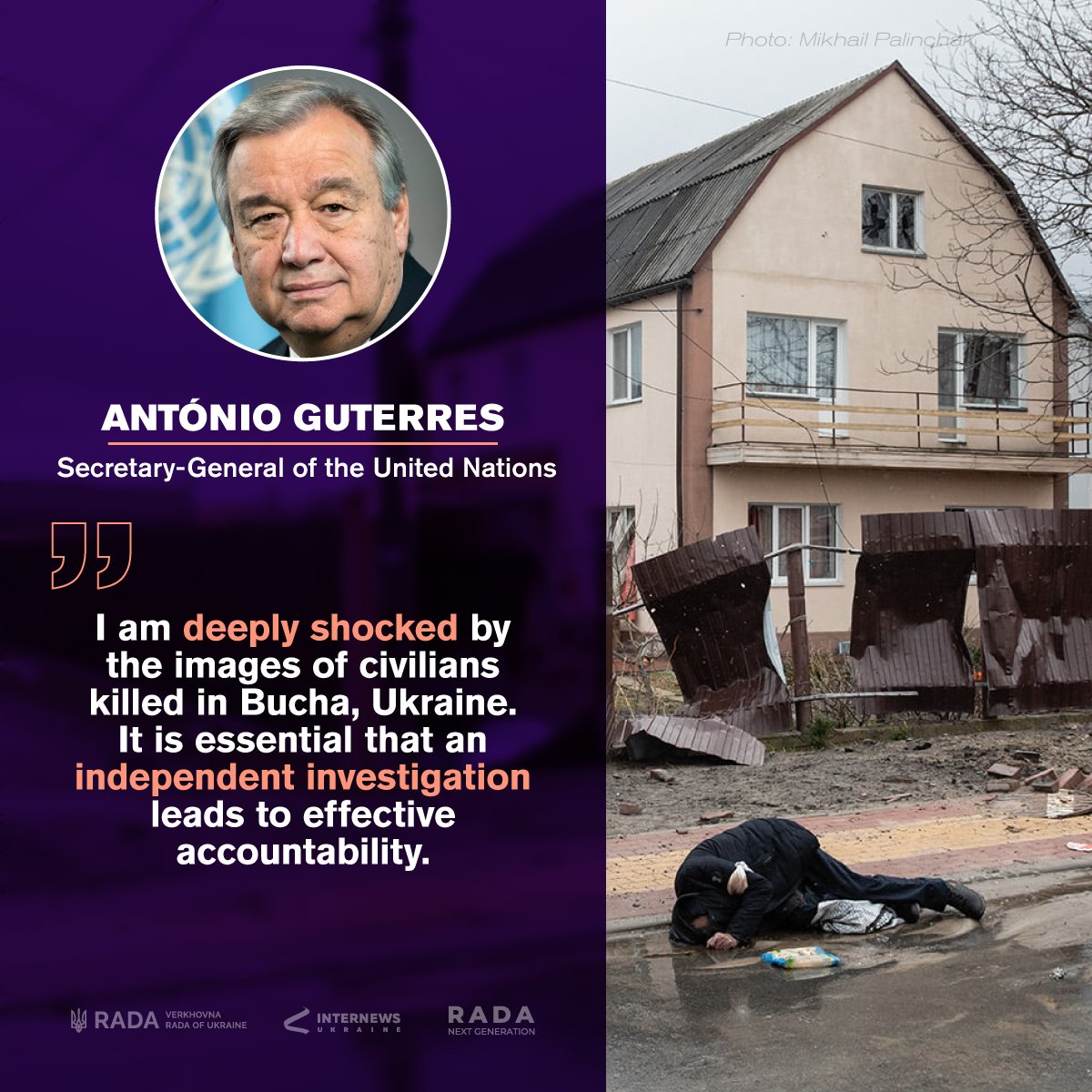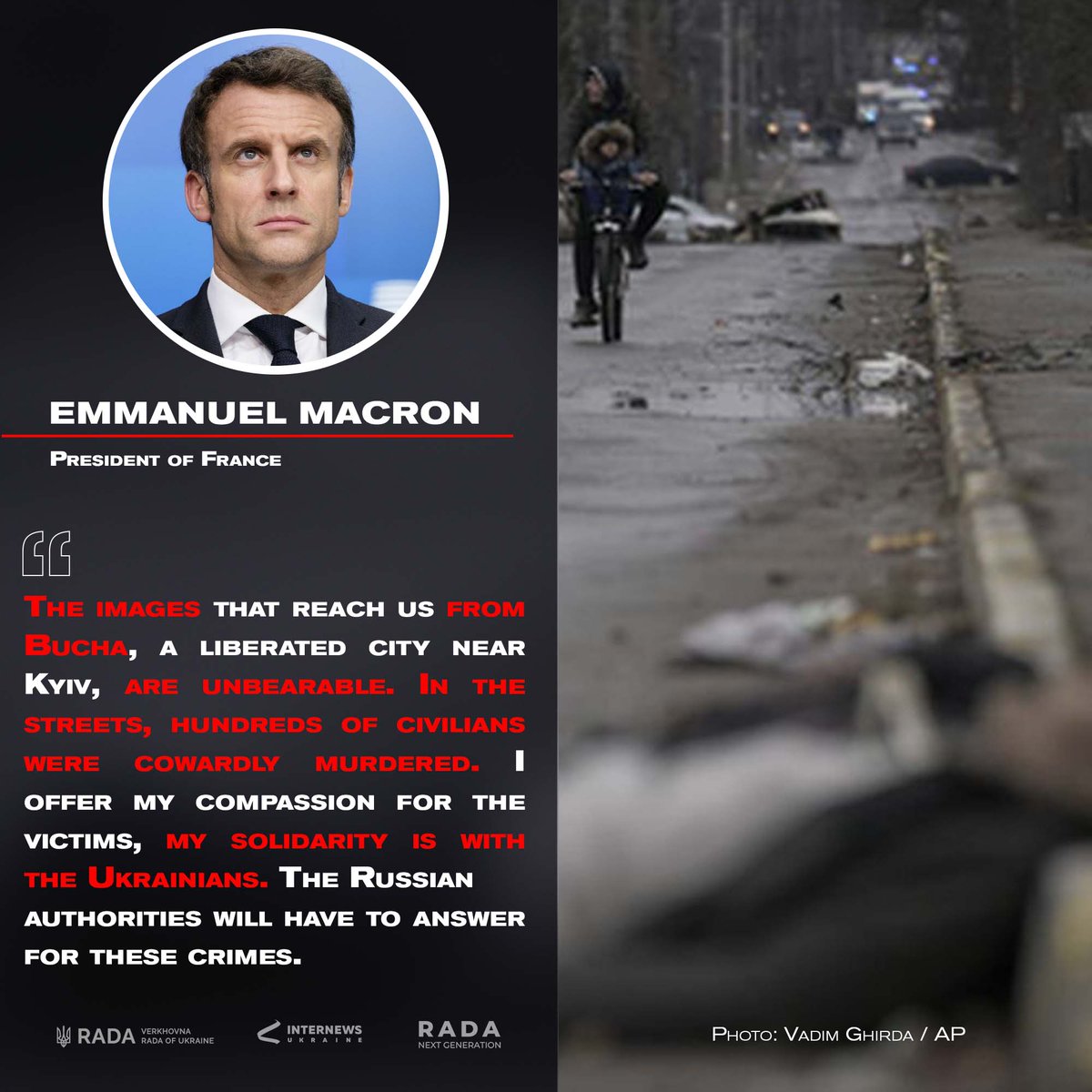Poland's President Duda called for sending more weapons to Ukraine after #BuchaMasacre was discovered #IStandWithUkraine #UAParliamentSpeaks 2/8 

Canada's PM calls for bringing to justice those responsible for #BuchaMasacre #UAParliamentSpeaks 3/8 

Today President Zelensky gave a speech at the UN Sec Council. Ukraine calls for lifting russia's veto as a permanent member of the UN Sec Council. That is vital during the investigation of the #BuchaMasacre began #UAParliamentSpeaks 4/8 

Roberta Mestola @EP_President was the one who just visited Kyiv and today @r_stefanchuk, Speaker of @ua_parliament reiterated his invitation to all speakers of the Parliament to visit Ukraine to see firsthand results of russia's war crimes #UAParliamentSpeaks 5/8 

France's rhetoric becomes more and more clear: russians will answer for these crimes #UAParliamentSpeaks 6/8 

Today Germany's Fed President admitted that Berlin's policy towards Russia was a mistake. Germany should not repeat the same mistakes #UAParliamentSpeaks 7/8 

UK Gov is once again reiterated that it is Kremlin's responsibility for #BuchaMasacre #UAParliamentSpeaks 8/8 

• • •
Missing some Tweet in this thread? You can try to
force a refresh









